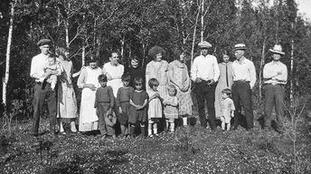|
with Angela Harris The Expository Essay This week's post will be short and sweet! We spent the bulk of our time reviewing thesis with tension, crafting practice theses statements, discussing the advantages and disadvantages of leaving one's home country for a new one, and how to find points and particulars for an expository essay! Thesis with Tension As discussed last week, a thesis with tension "...means the reader has a sensation of being stretched from a familiar, unsurprising idea to a new, surprising one..." (Allyn and Bacon Guide to Writing 44). A thesis with tension (for our purposes) should begin with the sentence starters "although" or "whereas" with the first part of the sentence stating the claim you're going to refute, and the second part of the sentence (or clause) asserting the view that your paper is going to prove or support. To practice thesis with tension, everyone wrote a thesis statement that was the answer to one of the four questions they posed at the end of our last class. The questions were excellent! We shared our theses and I think everyone gets the general idea. I was able to give some feedback so that hopefully our non-practice theses statements will be on target. The Homestead Movement and Bohemian and Swedish Immigrants  Students were given two handouts to read over before class. We discussed these briefly in context with our first expository essay assignment which is on the topic of leaving one's home country for a new one. Students can take this topic in many different directions and we spent a few minutes brainstorming verbally and then writing down some of those thoughts that stemmed from our discussion. Following the outline I provided, students should create their thesis with tension for the immigration essay and email it to me for approval. If they need to do some further research before crafting the thesis, that is more than fine, but I would recommend having it done and emailing it to me within the next two days. After receiving approval, students should continue with their research and fill out the "Points and Particulars" portion of their handouts. As I told the students, if they want to take an alternative view on this topic, that is fine! The evidence they find may lead them to make a surprising, unexpected statement. We’ll talk more about paraphrasing and summarizing our particulars next week, so don’t worry about that now. For the worksheet, these particulars can be just one or two sentences, but make a note about where you found the information so you can go back to it later. You can make these reference notes on index cards or computer. Print (or bookmark) at least one article or piece of information you used to fill in the outline and BRING IT TO CLASS NEXT WEEK. We’ll be practicing paraphrasing and summarizing using the research you found, so YOU'VE GOT TO COME PREPARED!
Any questions, email me! See you next week. Comments are closed.
|
Categories
All
Archives
May 2016
|

 RSS Feed
RSS Feed